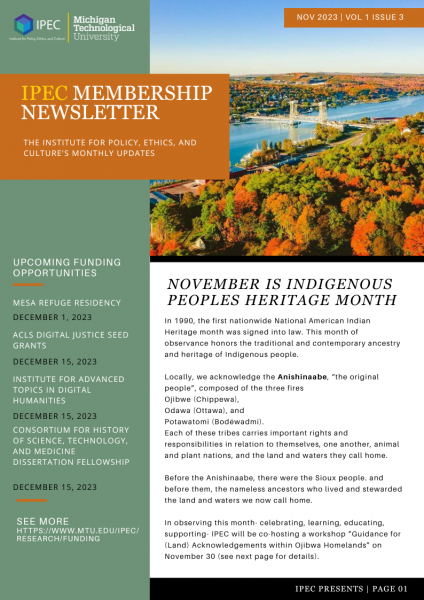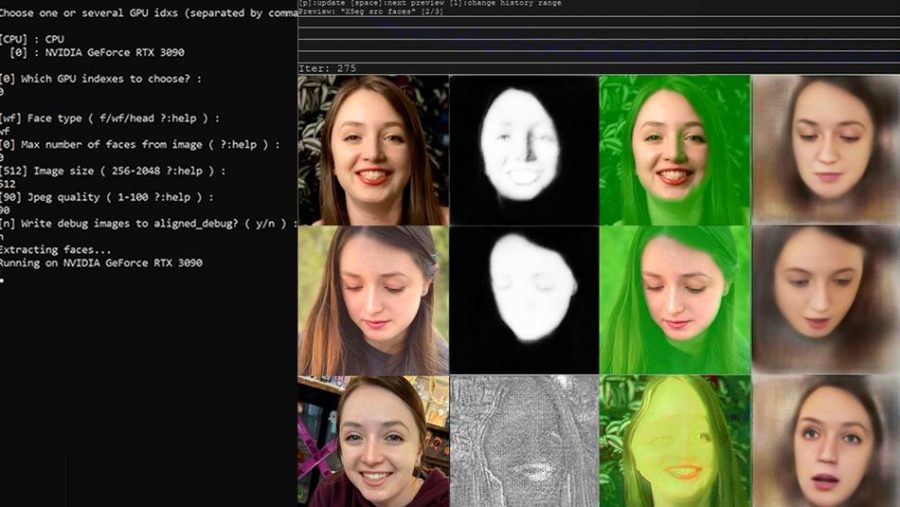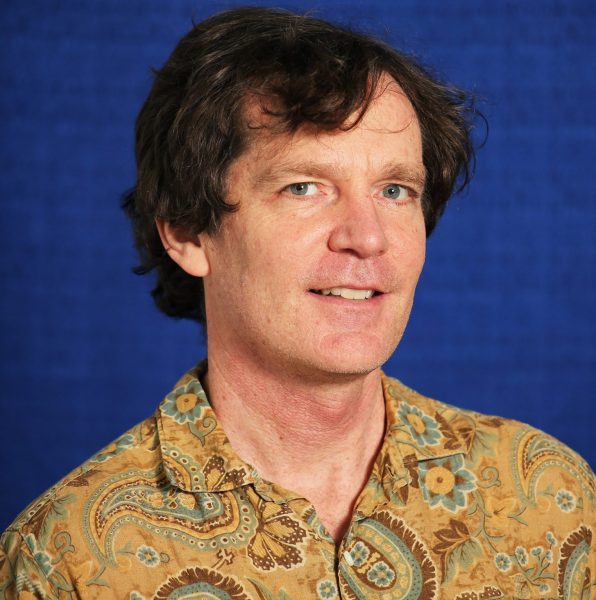
Featured Member
This month, we’re featuring the work of one of the institute’s executive committee members, Dr. Jason Archer.
Jason is an Assistant Professor of Communication and Media Technologies, Director of Communication, Culture, and Media, and Human Machine Culture Research Area Lead for IPEC.
According to Jason, “I situate my research at the nexus of communication, media studies, science and technology studies (STS), and sensory studies, with emphasis on human-machine communication and haptics. I am currently working on projects related to human machine culture: robotic touch and sociality, surgical robotics and sociotechnical constructions of disability, and haptic holograms.”
Events
During this year’s 41 North Film Festival, Jason will be hosting a panel with Steven Walton and Charles Wallace after the screening of the film Time Bomb Y2K on November 2, 7:00 pm.
We’re excited to delve into Jason’s research in this month’s episode of the IPEC Presents Podcast, streaming on Spotify and Apple Podcasts November 7, at 6:00 am.
Human Machine Culture Research Area
The Human Machine Culture research area seeks diverse researchers interested in examining cultural debates about communicative machines (social robots, virtual agents, chatbots, and other AI entities), critiquing the culture of communicative machine development, investigating social practices arising from the integration of these machines into everyday life, and exploring the potential for novel artistic and expressive forms emerging through human machine configurations.
The research area aims to establish connections between researchers of diverse disciplines, in areas of humanities, arts, sciences, and engineering to address the complexity and consequences of Human Machine Culture.



